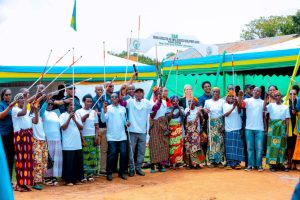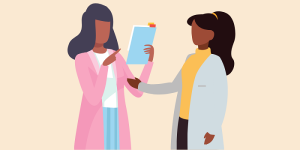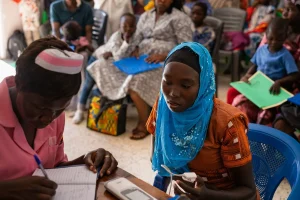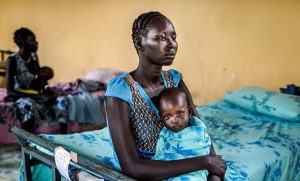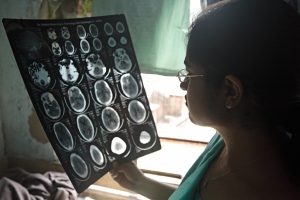Sightsavers joins Bloomberg Philanthropies’ global initiative to improve eye care
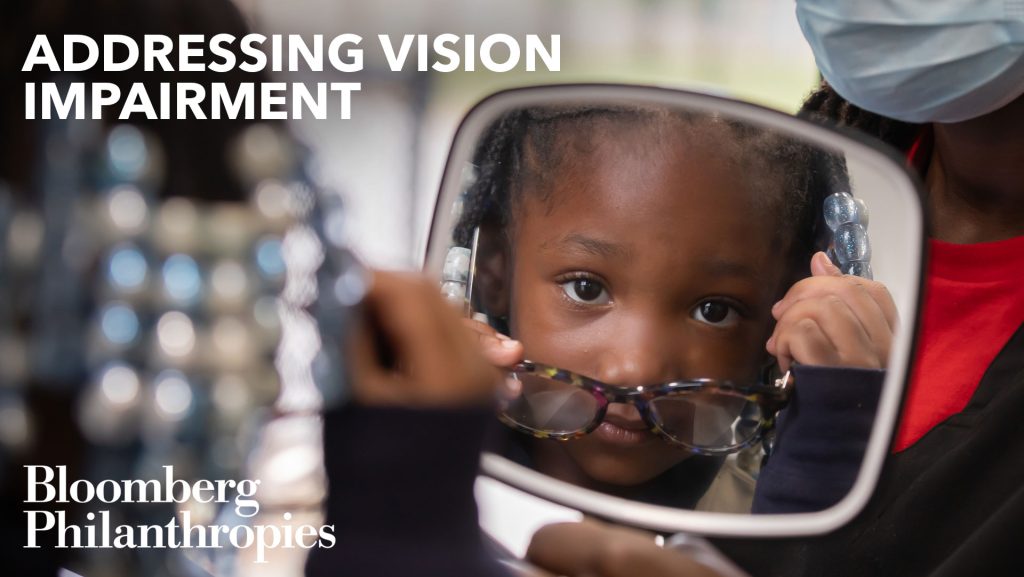
Bloomberg Philanthropies recently announced a new $75 million Vision Initiative to tackle untreated vision impairment in low and middle income countries and the United States. As part of this effort, international development organisation Sightsavers will work with Ministries of Health and Education in Kenya and Nigeria to enhance vision and eye health services. This includes training health workers and teachers in basic eye health screening; provision of eye examinations and glasses; and outreach in the community, workplaces, schools, and to out-of-school children.
Overall, the Bloomberg Philanthropies Vision Initiative will conduct vision screenings for 11.5 million people, distribute nearly seven million pairs of eyeglasses, and restore sight for 250,000 people through cataract surgeries in the United States, Bangladesh, Cambodia, Ethiopia, Kenya and Nigeria.
Bloomberg Philanthropies’ announcement complements Sightsavers’ call this World Sight Day (9 October) for further action to reduce the global burden of avoidable vision impairment such as uncorrected refractive errors and cataracts.
Vision and eye care is often a ‘missing’ topic in health and development priorities, but at least 1 billion people worldwide1 – that’s one in eight of us – have an untreated or preventable vision impairment. It is an important element of achieving the United Nations Sustainable Development Goals.
Increased investment in eye care from governments, philanthropists and organisations will unlock the potential for more people to learn, earn and prosper. New research from the IAPB, Seva Foundation and Fred Hollows Foundation estimates that addressing preventable vision impairment in low and middle income countries could boost the global economy by $447 billion every year2. That’s more than the combined GDP of Nigeria, Kenya, and Cote d’Ivoire3.
Eye health interventions including cataract surgery and glasses are cost-effective, with an estimated return on investment in low to middle income countries of US$28 for every dollar invested2.
Yet, the right to sight is not universal. More than 85% of people with vision impairment1 live in low and middle income countries. Shockingly, 70% of people with refractive error in Africa4 and nearly half of the people with refractive error in southeast Asia4 do not have the glasses they need. Women also account for more than half of blindness and visual impairment across the world1.
Sumrana Yasmin, Deputy Technical Director, Eye Health at Sightsavers says: “Making eye care a priority will be transformational for people, communities, and nations. Good eye health can reduce inequities, get more children in school and enable more adults to work. Access to glasses and cataract surgery could boost learning and economic productivity.”
It is estimated that prioritising vision and eye care in low and middle income countries could generate the equivalent of 13 million school years2.
The impact that access to glasses can have is seen through stories such as Sa’id, a 12-year-old boy in Kaduna, Nigeria. Sa’id enjoys running with friends, reading and learning at school. However, he was unhappy because he struggled with his eyesight. He couldn’t see clearly and, when he was asked to read at school, he had to move close to the board. Thanks to a Sightsavers project that trains teachers in basic eye health screening, Sai’d was diagnosed with refractive error and given glasses.
Reflecting on the support, Sa’id says: “I was happy when [my teacher] said I had a problem with my eye. I will be very happy because I want to be able to see everything from afar. I will be happy when I’m able to see well.”
Sumrana adds, “At Sightsavers, we are proud of our efforts to improve access to vision and eye care services, including our new partnership with Bloomberg Philanthropies and our ongoing work with governments, donors, decision-makers, NGOs, and other partners.
“We hope Bloomberg Philanthropies’ investment will spur additional global and national commitments. We need leadership and commitments, funding and partnerships, to make avoidable vision impairment truly avoidable.”
Sightsavers supports the wider call from the IAPB to make eye care a priority and put people at the heart of efforts. It also complements the World Health Organization’s efforts to raise awareness of eye health and advocate for universal access to eye care services.

SUBSCRIBE TO OUR NEWSLETTER

